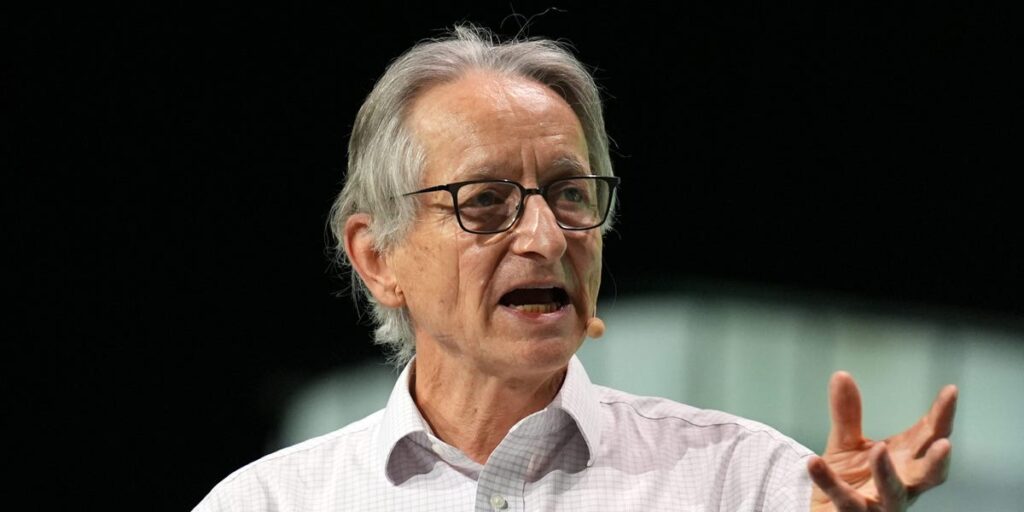There doesn’t seem to be much godfatherly love in the AI world these days.
Geoffrey Hinton, the ex-Google employee known as the “Godfather of AI” for his work on neural networks, has been vocal about the risks of the technology. He said on a recent episode of the “One Decision” podcast that “most” people at tech companies understand the risks, but don’t act on them.
“Many of the people in big companies, I think, are downplaying the risk publicly,” Hinton said on the episode, which aired on July 24. But he mentioned one tech leader who is attuned to the potential dangers of the technology.
“Demis Hassabis, for example, really does understand about the risks, and really wants to do something about it,” he said.
Hassabis is the CEO of Google DeepMind, the company’s main AI lab. He cofounded DeepMind in 2010 and sold it to Google in 2014 for $650 million, under the caveat that the tech giant would create an AI ethics board. A Nobel Prize winner, Hassabis had for years hoped that academics and scientists would lead the AI scramble. Now, he’s at the center of Google’s push for AI dominance, and some company insiders previously told Business Insider they think he might be in the running for CEO.
In February, Hassabis said that AI poses long-term risks and warned that agentic systems could get “out of control.” He has pushed for having an international governing body to regulate the technology. Late last month, protesters demonstrated outside DeepMind’s London office to demand more AI transparency.
Hinton spent more than a decade at Google himself before quitting to discuss the dangers of AI more openly. He said on a previous podcast episode that the company had encouraged him to stay and work on safety issues.
The so-called Godfather didn’t heap much praise on other Big Tech leaders — earlier in the podcast, he said that “the people who control AI, people like Musk and Zuckerberg, they are oligarchs.” Representatives for Musk and Zuckerberg did not respond to BI’s request for comment.
And as to the question of whether he trusts them? “I think when I called them oligarchs, you know the answer to that.”
Read the full article here


